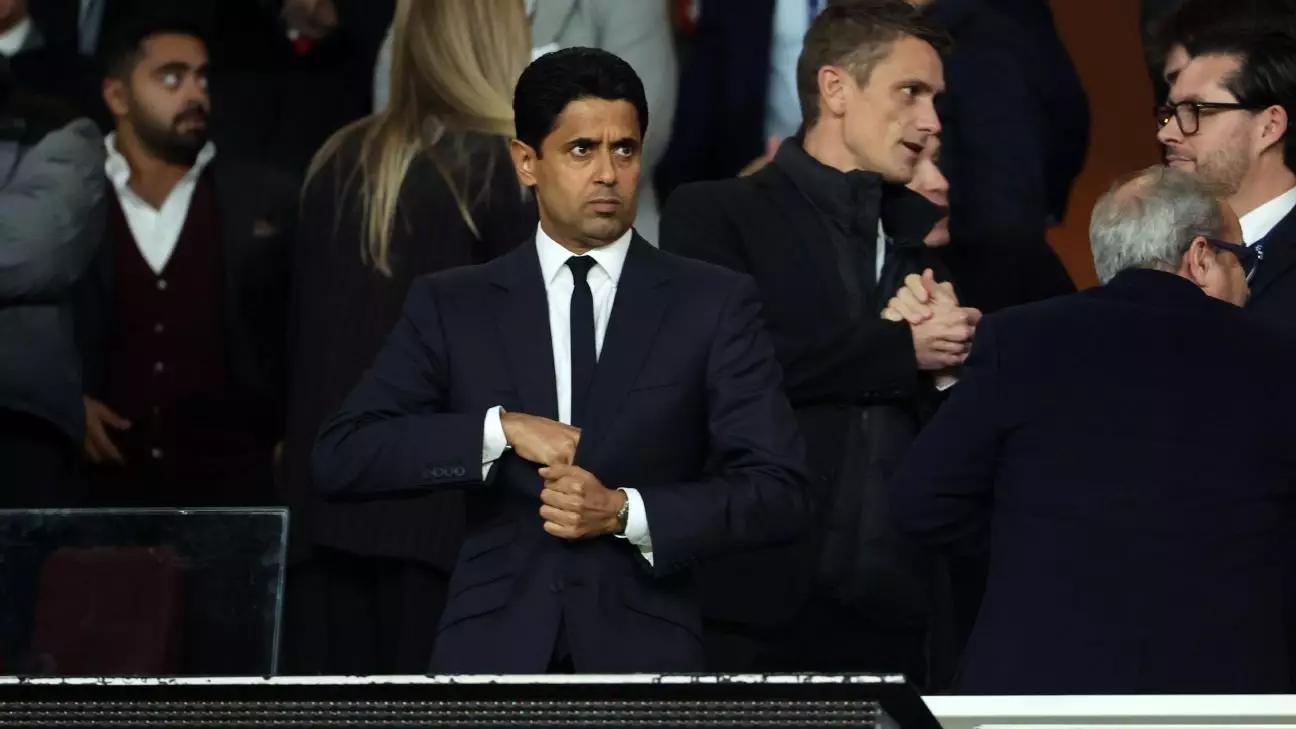The FIFA Club World Cup is entering a transformative phase, with plans for a revamped format anticipated to begin in the United States on June 15, 2025. This new iteration will feature 32 clubs competing over a month at various stadiums across the nation. While the expansive nature of the tournament aims to enhance its competitiveness and engagement, it has sparked significant controversy, particularly among players and clubs who are wary of the intensive demands it places on an already congested football calendar.
Paris Saint-Germain’s president, Nasser Al-Khelaïfi, has staunchly defended this new structure, suggesting that clubs critical of the tournament might prefer to refrain from participating if the demands are too high. His position reflects a fundamental tension surrounding the ways in which modern football is evolving, emphasizing both the excitement of expanded opportunities and the challenges of increased workload.
Tradition is a core element of football, yet the sport’s evolution into a global spectacle necessitates innovative approaches to scheduling and competition. Al-Khelaïfi’s comments highlight an important point: teams have historically expressed grievances regarding the number of clubs represented, whether by geographic limitations or the caliber of participating teams. Now that the format has expanded to include a greater number of clubs, concerns about player fatigue have emerged.
In a landscape where player welfare is paramount, balancing financial viability with the health of athletes represents a complex challenge. Al-Khelaïfi acknowledges the need to protect players, but he also emphasizes that clubs operate within a financial framework that requires them to recoup escalating wages. Football has become an industry where income and expenditure must align, and the influx of revenue from a well-attended Club World Cup could facilitate that alignment.
The apprehensions voiced by managers such as Pep Guardiola underscore the real implications of the tournament’s inaugural format. Guardiola lamented that the Premier League denied his request to delay Manchester City’s season start to allow for recovery after the Club World Cup, showcasing the clash between domestic league commitments and international competition. These conflicts raise serious questions: How can clubs manage their commitments to both primary leagues and global tournaments without compromising their performance or the well-being of their players?
Moreover, as top clubs aim for international glory, they are inevitably drawn into a cycle of relentless competition that can lead to burnout and decreased quality of play. This is not merely a concern for the clubs themselves; it also affects the viewing experience for fans who cherish high-caliber football.
A Path Forward?
As the football community grapples with these emerging issues, it becomes crucial to open channels of dialogue between decision-makers, clubs, players, and stakeholders. Al-Khelaïfi’s assertion that all parties need to engage in meaningful discussions about the calendar reflects an acknowledgment of the need for compromise. A balanced approach would ideally ensure that players can thrive both physically and mentally, facilitating their best performances on the pitch while thriving in an evolving business landscape.
Moreover, for the Club World Cup to reach its fullest potential, it must not only draw wider participation but also establish itself as an event that can excite fans globally. According to Al-Khelaïfi, with proper execution, the tournament could yield significant revenue for participating and even non-participating clubs alike. This aspiration adds weight to the argument that despite the logistical hurdles, the long-term benefits could significantly outweigh the initial strains.
The upcoming Club World Cup stands at a crossroads in football’s progression, reflecting the sport’s perpetual desire to blend commercial success with competitive integrity. As discussions continue about the best path forward, it is crucial for clubs and governing bodies to listen to the concerns of all involved while ensuring that the game remains true to its essence and values. Embracing change without losing sight of the foundational elements of football may indeed hold the key to the sport’s sustainable future as it navigates an era of unprecedented evolution.

